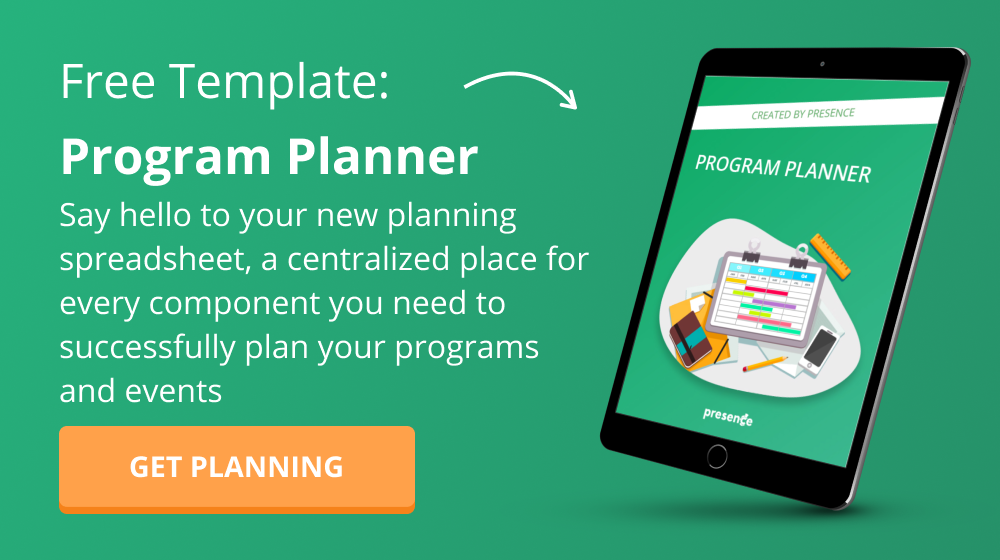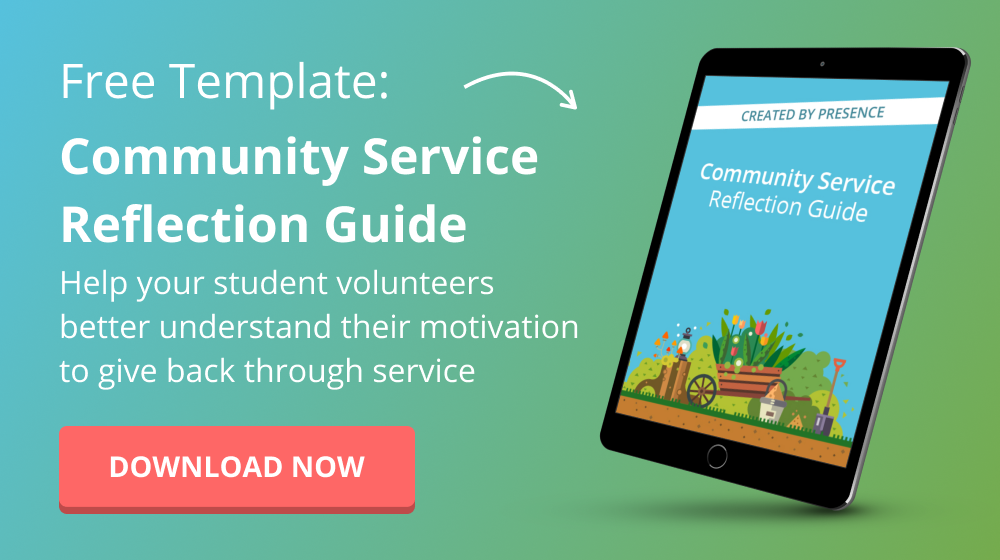Successful student organizations do not spring into existence like magic.
It takes support from the student activities office, student government, faculty and staff advisors, and other campus advocates to ensure that the leaders of these organizations can overcome the challenges they’ll face.
Many institutions have found it useful to host a series of workshops each semester that focus on improving org leaders’ core competencies — such as event planning, recruitment, and alumni engagement.
If you are interested in developing a workshop series, you should use or develop a framework or set of learning outcomes related to organizational management. Workshops that focus on improving individual leadership capacity are important, but organizational management as a competency deserves its own attention too.
The Student Organization Success Framework developed at Ohio State University is an excellent example of such a framework. Visit their website to explore examples of what each outcome looks like in practice.
To get you started in crafting your own workshop series, I’ve compiled enough workshop topics for two blog posts! Read on for the first half of the list, and check out the second one here.
1. Meeting Management
Meetings help students facilitate intra-organizational communication, brainstorm ideas, and make decisions. Yet, too few students understand how to effectively facilitate a meeting. And meeting management is a skill they may find useful in the workplace long after graduation.
A workshop on meeting management might teach students how to:
- tell whether a situation calls for a trainer or a facilitator
- determine who needs to be at the meeting
- design an effective agenda
- ensure that all attendees have an equal opportunity for participation
- develop a good meeting culture
- manage people who disrupt the meeting
- delegate work to committee members
During the workshop, the students could take turns role-playing as disruptive participants and meeting facilitators. And if you share ideas for icebreakers, teambuilders, energizers, or check-in activities, try to demonstrate them during the workshop itself so that students can feel prepared and excited to facilitate these activities later on their own.
The expert facilitators at Voltage Control and Meeteor have compiled additional lists of meeting skills and techniques to review.
2. Event Planning
Event planning is arguably one of the most important skills that you can help student leaders develop. That’s because attending events is integral to every students’ co-curricular experience.
Besides sharing your institution’s policies around event planning, your workshop should show students how to plan an event from start to finish, step by step.
Setting up a timeline, reaching out to co-sponsors, negotiating a contract, designing an inclusive experience, and assessing the event are all skills that students could be taught how to do over the course of this workshop.
The culmination of the workshop might be an exercise that challenges students to plan a mock program from start to finish. You can give them this program planner to organize their mock program.

Alternatively, you could present multiple workshops on any of the topics I’ve mentioned. This way, students can learn the topics that interest them most and speak to different skill levels.
3. Risk Management
It’s everyone’s job to help mitigate safety risks, so every student leader should receive some training in risk management.
Students should understand the five steps of risk management:
- Identify the risks. List the activities that are taking place during the event and determine what risks are associated with each activity.
- Assess the risks. For each risk, compare the probability that something will go wrong with the severity of the risk. (A risk management matrix like this one can help students visualize this step.)
- Address the risks. Consider how important the risky activity is to the event, along with the level of control students have over the risk. Then weigh the potential losses against the benefit that might come from proceeding with the risky activity.
- Implement the risk management plan. Depending on the answers to the previous step, students can accept the risk (if the probability and severity of the risk is negligible), reduce the risk (such as by changing the location or having more staff at the event), transfer the risk (by having participants sign waivers or having the event managed by a third-party vender), or eliminate the risk (by completely remove a risky activity from the event.)
- Evaluate the plan. Students and advisors review how effective the plan was at preventing and handling incidents during the event, noting any changes that should be implemented the next time.
These risk management guides from Rhode Island College and Chapman University provide excellent insights into the types of risks that student orgs may encounter.
4. Recruitment & Retention
Recruitment and retention are key to sustaining a student organization.
To help student organizations be successful, you can share multiple recruitment strategies during the workshop, emphasizing creative strategies that go beyond merely printing flyers and attending club fairs. You should also cover how to intentionally recruit a diversity of members and how to build relationships with prospective members.
When it comes to member retention, students should understand some of the common reasons why members leave organizations — such as loss of interest, limited free time, and a lack of engagement. On the flip side, the GRAPE Principle describes the most common reasons why students join student organizations: Growth, recognition, achievement, participation, and enjoyment.
5. Getting Involved in Community Service
Community service experiences can serve as both team-building activities and lessons in citizenship for student org members.
Partner with your institution’s civic engagement department to present a workshop on the importance of community service, perhaps sharing with students the idea of the active citizen continuum. Let students know if the civic engagement department can plan service activities tailored to their individual group’s scheduling needs.
If you need a community service reflection guide, you can find one here.

6. Marketing Strategies
The topic of marketing strategies deserves its own workshop separate from one focused on event planning.
This workshop is perfect for introducing students to the marketing methods that are already built into the campus environment, along with the policies that apply to them. You can review marketing methods, such as public bulletin boards (both physical and digital), flyers, sidewalk chalking, weekly email blasts from the student activities department, and master calendars.
And consider sharing other, more innovative marketing methods, such as these 26 ideas.
In his article An Analysis of Student Organization Marketing, Indra Sofian recommends helping students define specific goals for their marketing campaigns, such as their target number of people to reach, what student demographics they want to engage, and how much of their budget they’re willing to spend on marketing.
7. Social Media
When used well, social media can boost member engagement. Consider facilitating a workshop about utilizing social media for more than just meeting reminders and event marketing. Your advice can help students take their social media practices to the next level!
Here are some social media ideas that I’ve previously written about:
- Share news articles and blog posts that members might find interesting.
- Share podcasts, videos, and other resources that members might be looking for.
- Create polls for members to answer. Mix it up with both functional questions (such as choosing the next event) and fun questions (such as one of these icebreaker questions).
- Ask open-ended questions and invite members to reply in the comments.
- Host a livestream video to provide members with updates from the executive board about the projects they’re working on.
And no social media marketing workshop would be complete without reviewing accessibility features, such as closed and open captioning, alternative text, and other aspects of inclusive design.
Additionally, if you have time, you can share some creative ways for students to use TikTok, graphics, slideshows, and videos. You can also share these essential graphic design principles.
You could also show students how to conduct a social media audit to evaluate how effective their social media efforts are. This article explains why and how to conduct such an audit.
Finally, Iowa State University has some social media best practices that would be useful to print and hand out to students.
8. Working With Your Advisor
Org advisors have the potential to be invaluable resources, but students may not understand how to begin cultivating this partnership.
There may be certain tasks that the institution requires advisors to take on, such as signing off on budget forms or chaperoning off-campus trips. But, outside of those mandated responsibilities, there’s usually a lot of flexibility in how orgs can shape the advisor-advisee relationship.
I recommend introducing student leaders to the advisor expectations checklist and discuss the pros and cons of having an advisor take responsibility for each item.
Have students fill out the checklist; later, students will give a copy of the checklist to their advisor and ask them to fill it out. The two copies should be compared, with the advisor and advisees discussing any differences in opinion.
Additionally, you can show students how to conduct an informational interview with their advisor. The top goal of this interview will be for students to more deeply understand the skills, knowledge, and connections that their advisor brings to the table.
The student should ask about what other organizations their advisor is affiliated with, what their areas of expertise are, and what professional roles they’ve held. Students can find out useful information this way! For example, the advisor may know of a conference that the organization’s members may be interested in attending. Or, they might have a personal connection to someone who would be willing to facilitate a workshop for the students.
9. Constitution Revision
An organization’s constitution serves as the foundation for future success. Yet, this document shouldn’t be stagnant; it needs to be updated from time to time.
A constitution revision workshop could be a great interactive program. Ask participating students to bring a copy of their org’s constitution and mark it up as you talk them through the best practices of constitution revision. The students may wish to review key processes (such as elections or reimbursement approvals) to make them more efficient or they may wish to consider revising the current leadership structure.
Students should also consider adding an anti-racism statement to their constitution. Even if the constitution already contains a statement of non-discrimination, an anti-racism statement has added value as it lays out specific ways in which the organization is striving to be anti-racist. I recommend Marcelius Braxton’s outline for how to write an anti-racism statement that is sincere, impactful, and transformative. Any of these anti-racism resources can be used in follow-up conversations.
To get the most mileage out of your workshop series, try to design workshops that appeal to multiple students — current org officers as well as members that aspire to hold such positions. That way, you can attract a larger audience for these programs.
There are even more ideas in the second part of this blog series. Check it out here.





